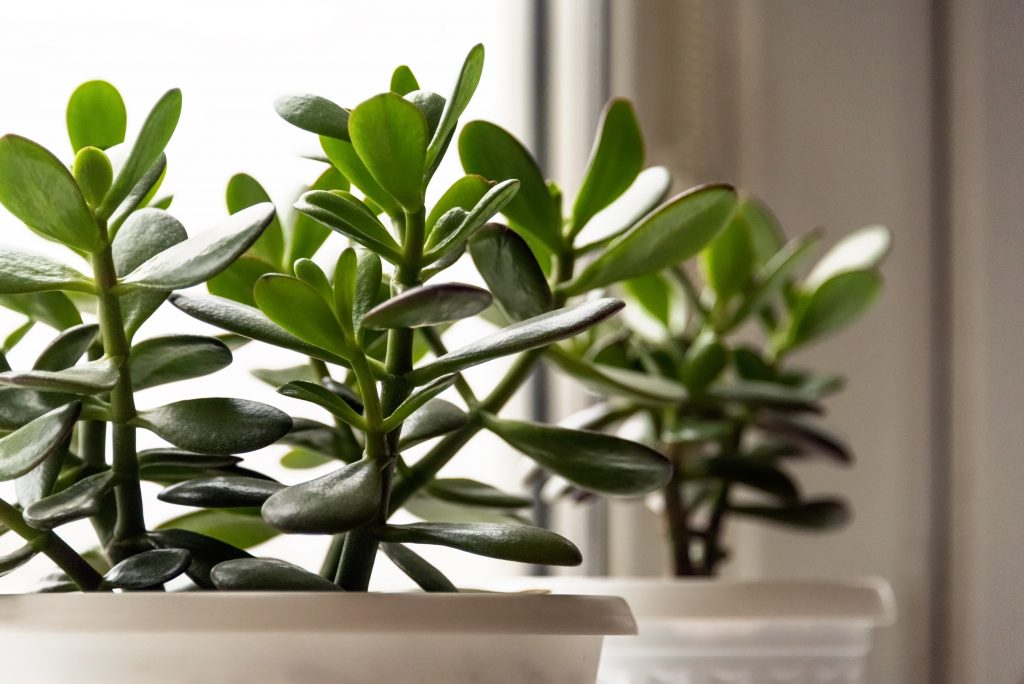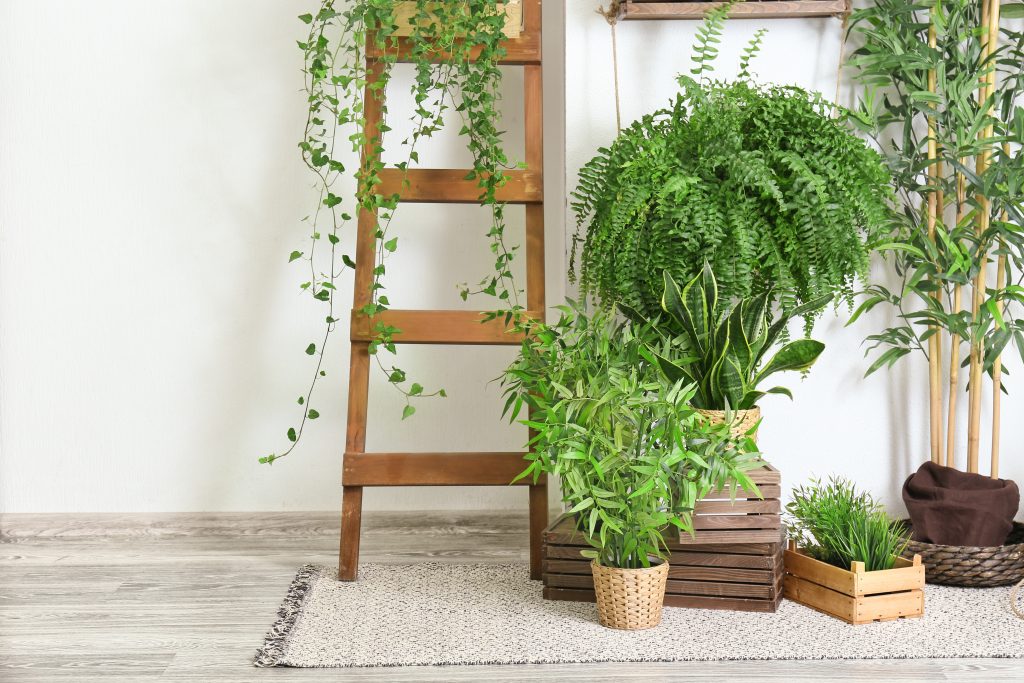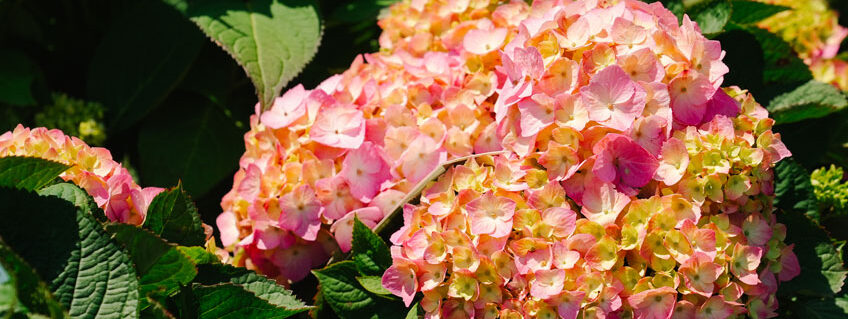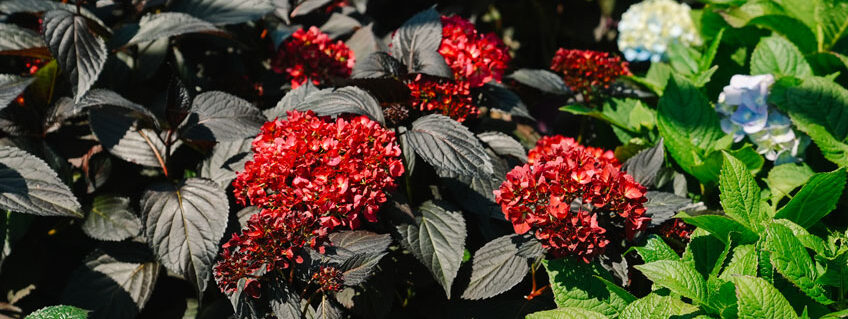Not only do houseplants beautify our homes, they have been shown to improve our mood, boost creativity, reduce stress and even purify the air. Most houseplants originate from the tropics so they should thrive indoors when you recreate their natural environment in your own home, and in their pot. Generally, normal room temperature and partial sunlight with some sensitivity to placement, such as avoiding cold and drafty spots, will allow your plants to thrive.
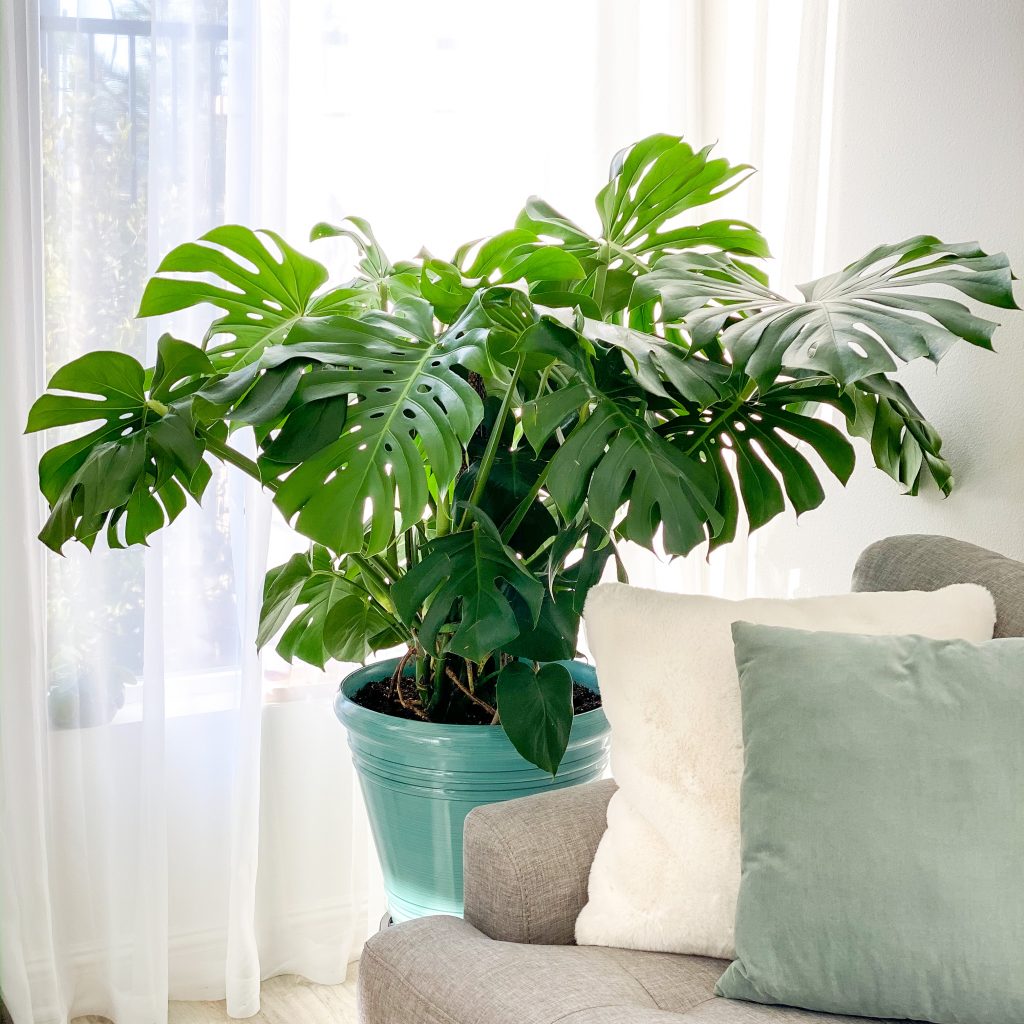
Virtually all plants require the basics of light, water, food and soil. In order to best care for your houseplants, it is important to understand their basic needs.
Light
The intensity and duration of light can be impacted by factors such as seasonal variation of the angle of the sun, curtains, trees, neighboring buildings, and other obstructions. The amount and intensity of sunlight also varies according to window placement; southern exposure is the most intense, north the least. East facing windows receive morning sun and west get afternoon sun. Afternoon sun is more intense than morning sun.
- Direct Sun – With the exception of cacti and succulents, most houseplants do not thrive in full direct sunlight. Cacti and succulents may need protection from intense summer sun.
- Bright Light Without Direct Sun – Plants placed a few feet back from a southern facing window will avoid direct sun but still get plenty of bright light-suitable for many types of houseplants, both foliage and flowering. Consider: Cacti, Succulents, Tillandsia, Croton, Gardenia, Begonia, and Bromeliads.
- Moderate Light – Many flowering plants do well when placed near an east or west facing window where they receive a few hours of morning or afternoon sun. Consider: Begonias, Kalanchoe, Peperomia, Spider Plants, Schleffera, Croton, Palms, Ficus, Dracaena, African Violets, and Calathea.
- Low Light – Low light does not mean NO light! Weak or filtered light due to trees or buildings outside your windows or locations set far back from your windows qualify as low light. Ambient artificial light can also be considered a low light situation. Consider: Pothos, Philodendron, Aglaonema, Sansevieria, Ivy, Ferns, Palms, Dracaena, Spathiphyllum, ZZ plant, and Nepthytis.
- Dust your plants regularly as a buildup of dust can physically block the light from reaching the leaves.
Water
Plant watering needs will vary with location within your home, weather, season, the plant’s growth cycle, and the plant species itself.
- When purchasing a new houseplant, be sure to inquire about water requirements. As a general rule of thumb, most houseplants would prefer being slightly dry than soaking wet. Make sure that the pot has drainage holes so that plant roots are not sitting in water.
- Stick your finger about an inch down into the soil – if it is dry, your plant needs water. Water thoroughly until water seeps out of the drainage holes.
- Some plants, such as cacti, succulents and African violets prefer to be watered from the bottom up. Simply place plant in a shallow saucer filled with water and water will soak into the soil through the drainage holes. Keep refilling saucer until water is no longer absorbed.
- In winter, when the air tends to be dry, increase humidity with a pebble tray with water, a mister, a humidifier, or a monthly shower in the bathroom to saturate foliage as well as soil.
- Water requirements are generally lower in the winter when plants tend to be dormant.
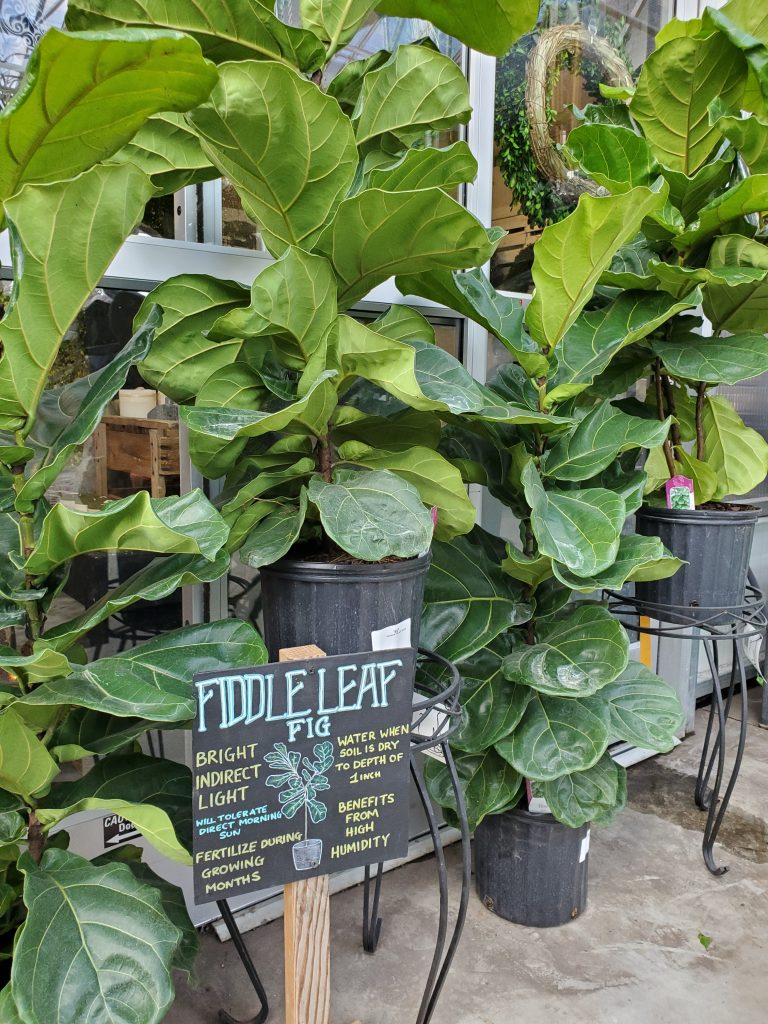
Soil
Houseplants have particular soil requirements. Do not use outdoor garden soil as it is too heavy and may contain pests or diseases.
- In general, a basic potting mix for indoor plants is a mixture of peat moss, vermiculite and perlite.
- Potting mixes are designed to absorb moisture very well and resist compaction, but they tend to dry out very quickly.
- Potting medium should be light enough to allow for oxygen to reach roots and allow for root growth without compaction.
- Some types of plants, such as cacti, succulents, ferns, African violets and orchids require special mixes.
Fertilizer
Although some potting mixes may contain fertilizers or other organic nutrient sources, most houseplants will need additional fertilizing over time.
- At most, houseplants should only be fertilized from April through October, while they are actively growing.
- Choose a balanced fertilizer such as 10-10-10 and follow the directions on the package.
- Liquid or slow release fertilizers are best for houseplants.
- Be judicious in your use of fertilizer – too much is often worse than too little!
- Some species of plants, such as orchids and African violets, require specialized fertilizer.
Repotting
If your plant has roots protruding through the drainage hole or is pot bound, it is time to repot.
- The best time to repot is early spring.
- Choose a new pot that is just slightly larger than the current one.
- Water the plant in its original container prior to repotting.
- Gently loosen roots so that they are no longer so densely matted.
- Add some potting mix to the bottom of the new container, place plant in the new container and backfill around the root ball with potting mix, taking care to leave about one inch free between the potting mix and the top of the container.
- Water thoroughly.
- Please inquire about our houseplant repotting service.
Problems
Overwatering is the most common problem and can manifest in different ways. Pests, both insect and fungal are possible and occur more often in stressed plants.
- Brown leaf tips can be due to overwatering, underwatering, low humidity or too much fertilizer.
- Yellowing leaves: Overwatering, insufficient light, air too dry or too cold.
- Wilting: Potting mix is too dry or too wet.
- Leaf drop: Overwatering, improper light, or cold.
- Root rot: Overwatering, poor drainage
- Insects such as aphids, mites and fungus gnats can infest your houseplants and may spread rapidly between plants. Isolate infested plants and treat as needed. Many insect pests can be eliminated by using a topical application of an insecticidal soap, Neem oil or a systemic insecticide such as “Bonide Systemic Houseplant Insect Control.” Fungus gnats can also be treated by using “Mosquito Bits.” If the infestation cannot be eliminated, it may be necessary to dispose of the infested plants. Feel free to consult us for advice.
- Some fungal diseases can be controlled by removing infected leaves, improving air circulation around plant and avoiding getting water on leaves. Again, feel free to consult us with any issues.
